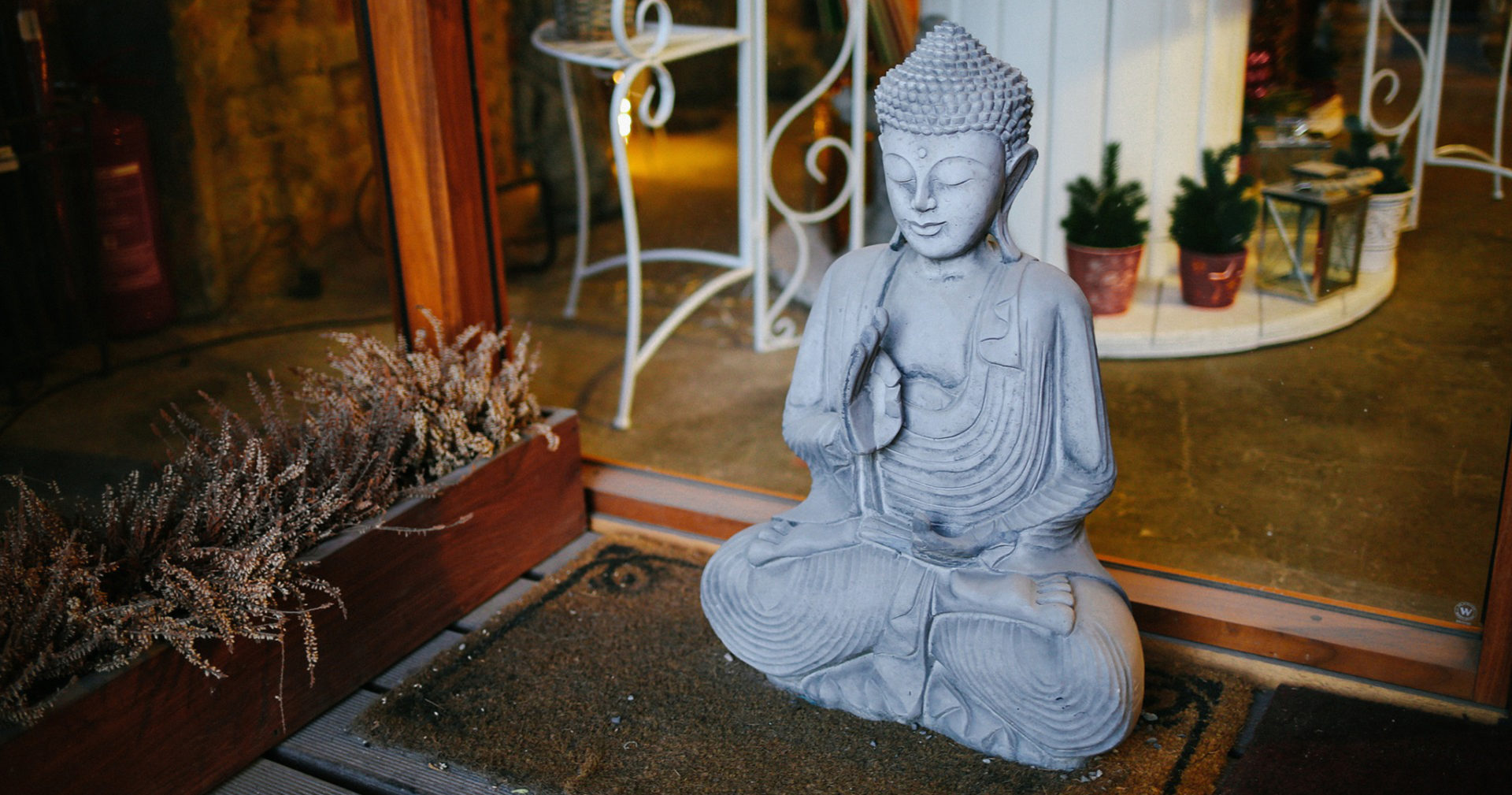If you’re thinking about getting started with meditation, there are some things that you need to know before jumping into it. Although meditation can certainly change your life for the better, it will only do so if you go into it fully prepared and with as much knowledge about mediation as possible. So, here are 10 things about meditation you need to know today.
1. There Are Different Types Of Meditation
There are many types of meditation, and every one of them is a little different. There are three primary types of meditation: open monitoring, focused attention, and automatic self-transcending. Within these, there are many other types of meditation that you can do, including heart rhythm meditation, guided visualization, and Qi Gong.
Each type of meditation is different and has various purposes and benefits. That’s why it’s important to take some time to determine exactly what you want to get out of meditation before you jump into it. You need to make sure that the type of meditation you choose fits your lifestyle and beliefs, and is something that will benefit you. There are some types of meditation that target specific problems such as anxiety, heart disease, or stress.
2. You Don’t Have To Stick With One Type Of Meditation
You’re by no means stuck with the first type of meditation that you choose. In fact, even if you’ve taken the time to decide which one is right for you, it still may not end up working for you. The good news is that you can keep looking for another type of meditation to try until you do find something that works for you. You can also learn several types of meditation to gain the different benefits and use them for different situations.
We recommend taking time to learn one type well before moving onto another type of meditation. Because each type requires time to learn and practice, it’s better to keep your focus on one type until you’ve mastered it before you decide to learn another one. However, once you have mastered several types, you’ll be ready to use them when you need them.
3. It Doesn’t Require A Certain Posture Or Position
When most people think of meditation, the first thing that comes to mind is a cross-legged guru with their hands resting on their thighs, fingers and thumbs forming circles while they hum. However, there really aren’t any specific rules about how to meditate, and you certainly don’t have to sit rigidly the whole time.
Actually, meditation requires you to be as comfortable as possible so you can keep focused on what’s going on in your mind instead of your body. Sitting upright is generally the best position so you don’t fall asleep while meditating, but there are some types of meditation that require you to be laying down, like body scan meditations and meditation for sleep.
4. It Won’t Make Your Mind Go Blank
Something that many people incorrectly believe about meditation is that it involves emptying your mind of all your thoughts and reach a state where you think of absolutely nothing for a period of time, and it’s that blank slate that allows you to accomplish a greater level of enlightenment and self-awareness. However, this is simply not true, nor is it possible.
The mind naturally jumps from thought to thought, and trying to stop it from doing that will only leave you frustrated and very much not relaxed. What meditation actually does is gives you tools to keep your focus on only your meditation. Being aware of the thoughts that come up during meditation is an important part of it and is what will help you come to a deeper understanding of your own mind.
5. You can learn from a variety of sources
Some people believe that there’s only one way to learn how to meditate, but there are actually several different ways. This is great news because everybody has a different learning style, so not everybody is going to be able to learn meditation the same way, just like learning anything. Fortunately, for as many learning styles as there are, there are tools and techniques to learn how to meditate.
You may find that reading a book is the best way to learn meditation. Others may instead listen to that same book on audio to learn. You can also get help from someone who has already mastered the type of meditation you want to learn. This can be the best way because they can help guide you and work through any specific problems that you have. What’s important is that you find what works best for you.
6. You Might Fall Asleep During Meditation.
Even if you’re not doing meditation specifically to fall asleep, you may find yourself falling asleep while meditating because it puts you into such a relaxed state, especially if you’re doing it at the end of a long day at work. The good news is that this is totally normal and if you do, don’t worry too much about it. If it does seem to be turning into a problem, then you can try a few techniques to keep yourself alert during meditation.
7. Meditation Physically Changes Your Brain
Although meditators have known that there are profound changes that happen in your mind when you meditate, only recently have researchers taken the time to study the physical changes that take place in your brain because of meditation. Some studies that have been done looked at the differences between meditators and non-meditators, while others looked at the changes that occurred in a group of people who started meditating.
One of the changes seen in the brain of those who mediate regularly is that there’s more gray matter which means more brain cells. Another change involved the amygdala which is where the “fight or flight” reflex is triggered. In those that meditate regularly, this area was physically smaller which means they’re more likely to handle stressful situations without reacting with fear.
Another interesting thing to note when it comes to physical changes that happen when you meditate are the brain scans done of people who have been meditating for many, many years. Their scans when they were not meditating looked like an inexperienced meditating while in a state of meditation, meaning that the changes that occur during meditation eventually become permanent.
8. There Are Many Health Benefits To Meditating
The health benefits that occur in the brain from meditating are only the beginning of the many things that meditation can do for your body. Meditation has also shown that it can increase blood circulation which helps lower your blood pressure and your risk of developing heart disease, which is the leading cause of death for people in the United States.
One of the reasons that meditation has such an impact on your health is that as you become more aware of your inner self, you become more protective of it and begin to make healthier choices for your body. Many people have successfully used meditation to quit smoking or get out of other addictions because meditation allows them to deal with the underlying reasons for their addition.
9. It Doesn’t Have To Take A Lot Of Time Out Of Your Day
This may be one of the most common misconceptions with meditation is that it takes up a significant part of the day. This belief has led many people to not even bother to meditate since they don’t feel like they’ll have the time to do it. Although there are certainly some types of meditation that expect people to devote an hour in the morning and an hour at night, there are many more that require significantly shorter amounts of time, as little as 5 minutes, that are easy to fit into your day.
For people that truly understand how important meditating is, they will make it a priority and make sure that they devote the time they need to meditate every day. As you start meditating regularly and see the benefits of it, then you, too, will be willing to get up a little earlier or put your phone down for a few minutes to meditate.
10. It Takes Time To Master
Like learning any new skill, meditation takes time to master. You won’t get it right the first few times, and that’s ok. Just like you don’t be able to run a 6-minute mile the first time you step onto a running track, you need to practice to master meditation. It will also take time for you to begin to see the benefits of meditation, so don’t give up if you don’t immediately start sleeping better at night or feeling less stressed throughout the day.
This is why self-evaluation is such an important part of meditation. You need to take a step back every once and a while to really evaluate how you are so you can see that the meditation really is working. One way to do this is by keeping a journal where you can note your thoughts and feelings. Over time, you’ll see how meditation is changing you and the way you see the world.






I really love how this website is done but I’m not great with a lot of information at one time because of the brain injury. Is there a simple way to get started?